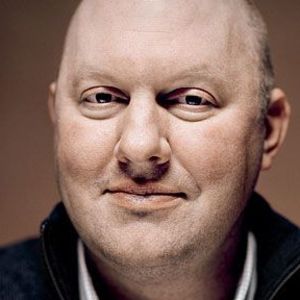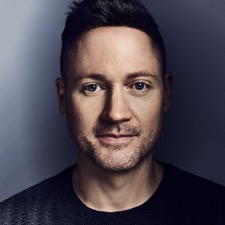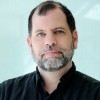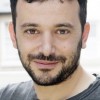Want to know what books Bryan Johnson recommends on their reading list? We've researched interviews, social media posts, podcasts, and articles to build a comprehensive list of Bryan Johnson's favorite book recommendations of all time.
1

Major New York Times bestseller
Winner of the National Academy of Sciences Best Book Award in 2012
Selected by the New York Times Book Review as one of the best books of 2011
A Globe and Mail Best Books of the Year 2011 Title
One of The Economist's 2011 Books of the Year
One of The Wall Street Journal's Best Nonfiction Books of the Year 2011
2013 Presidential Medal of Freedom Recipient
In the international bestseller, Thinking, Fast and Slow, Daniel Kahneman, the renowned psychologist and winner of the Nobel... more Major New York Times bestseller
Winner of the National Academy of Sciences Best Book Award in 2012
Selected by the New York Times Book Review as one of the best books of 2011
A Globe and Mail Best Books of the Year 2011 Title
One of The Economist's 2011 Books of the Year
One of The Wall Street Journal's Best Nonfiction Books of the Year 2011
2013 Presidential Medal of Freedom Recipient
In the international bestseller, Thinking, Fast and Slow, Daniel Kahneman, the renowned psychologist and winner of the Nobel Prize in Economics, takes us on a groundbreaking tour of the mind and explains the two systems that drive the way we think. System 1 is fast, intuitive, and emotional; System 2 is slower, more deliberative, and more logical. The impact of overconfidence on corporate strategies, the difficulties of predicting what will make us happy in the future, the profound effect of cognitive biases on everything from playing the stock market to planning our next vacation—each of these can be understood only by knowing how the two systems shape our judgments and decisions.
Engaging the reader in a lively conversation about how we think, Kahneman reveals where we can and cannot trust our intuitions and how we can tap into the benefits of slow thinking. He offers practical and enlightening insights into how choices are made in both our business and our personal lives—and how we can use different techniques to guard against the mental glitches that often get us into trouble. Winner of the National Academy of Sciences Best Book Award and the Los Angeles Times Book Prize and selected by The New York Times Book Review as one of the ten best books of 2011, Thinking, Fast and Slow is destined to be a classic. less 
Barack ObamaA few months ago, Mr. Obama read “Thinking, Fast and Slow,” by Daniel Kahneman, about how people make decisions — quick, instinctive thinking versus slower, contemplative deliberation. For Mr. Obama, a deliberator in an instinctive business, this may be as instructive as any political science text. (Source)

Marc AndreessenCaptivating dive into human decision making, marred by inclusion of several/many? psychology studies that fail to replicate. Will stand as a cautionary tale? (Source)
2

“Why We Sleep is an important and fascinating book…Walker taught me a lot about this basic activity that every person on Earth needs. I suspect his book will do the same for you.” —Bill Gates
A New York Times bestseller and international sensation, this “stimulating and important book” (Financial Times) is a fascinating dive into the purpose and power of slumber.
With two appearances on CBS This Morning and Fresh Air's most popular interview of 2017, Matthew Walker has made abundantly clear that sleep is one of the most... more “Why We Sleep is an important and fascinating book…Walker taught me a lot about this basic activity that every person on Earth needs. I suspect his book will do the same for you.” —Bill Gates
A New York Times bestseller and international sensation, this “stimulating and important book” (Financial Times) is a fascinating dive into the purpose and power of slumber.
With two appearances on CBS This Morning and Fresh Air's most popular interview of 2017, Matthew Walker has made abundantly clear that sleep is one of the most important but least understood aspects of our life. Until very recently, science had no answer to the question of why we sleep, or what good it served, or why we suffer such devastating health consequences when it is absent. Compared to the other basic drives in life—eating, drinking, and reproducing—the purpose of sleep remains more elusive.
Within the brain, sleep enriches a diversity of functions, including our ability to learn, memorize, and make logical decisions. It recalibrates our emotions, restocks our immune system, fine-tunes our metabolism, and regulates our appetite. Dreaming creates a virtual reality space in which the brain melds past and present knowledge, inspiring creativity.
In this “compelling and utterly convincing” (The Sunday Times) book, preeminent neuroscientist and sleep expert Matthew Walker provides a revolutionary exploration of sleep, examining how it affects every aspect of our physical and mental well-being. Charting the most cutting-edge scientific breakthroughs, and marshalling his decades of research and clinical practice, Walker explains how we can harness sleep to improve learning, mood and energy levels, regulate hormones, prevent cancer, Alzheimer’s and diabetes, slow the effects of aging, and increase longevity. He also provides actionable steps towards getting a better night’s sleep every night.
Clear-eyed, fascinating, and accessible, Why We Sleep is a crucial and illuminating book. Written with the precision of Atul Gawande, Andrew Solomon, and Sherwin Nuland, it is “recommended for night-table reading in the most pragmatic sense” (The New York Times Book Review). less 

 Recommended by Bill Gates, Brad Feld, Alexis Ohanian Sr., and 14 others.
Recommended by Bill Gates, Brad Feld, Alexis Ohanian Sr., and 14 others. 
Bill GatesExplains how neglecting sleep undercuts your creativity, problem solving, decision-making, learning, memory, heart health, brain health, mental health, emotional well-being, immune system, and even your life span. (Source)

Brad FeldSeveral friends, who know I both love to sleep and am intrigued with how sleep works, recommended that I read Why We Sleep: Unlocking the Power of Sleep and Dreams. It was excellent. While my self-assessment of my sleep habits are very positive, I learned a few things. More importantly, I now have a much better understanding of the “Why” surrounding sleep, especially around sleep’s importance to... (Source)

Alexis Ohanian Sr.Agree! Best book I've read this year. Wasted so many hours just proving to myself I'd be the last one up working at @reddit and for what??? Stupid. Diminishing marginal returns after enough hours without sleep. https://t.co/cT7fDNBF3A (Source)
3

La historia de cómo hemos descifrado el código fuente que nos hace humanos abarca todo el planeta y varios siglos -y probablemente defina el futuro que nos espera.
Entrelazando ciencia, historia y vivencias personales, Mukherjee hace un recorrido por el nacimiento, el crecimiento, la influencia y el futuro de una de las ideas más poderosas y peligrosas de la historia de la ciencia: el gen, la unidad fundamental de la herencia, y la unidad básica de toda la información biológica. Desde Aristóteles y Pitágoras, pasando por los descubrimientos relegados de Mendel, la revolución de... more La historia de cómo hemos descifrado el código fuente que nos hace humanos abarca todo el planeta y varios siglos -y probablemente defina el futuro que nos espera.
Entrelazando ciencia, historia y vivencias personales, Mukherjee hace un recorrido por el nacimiento, el crecimiento, la influencia y el futuro de una de las ideas más poderosas y peligrosas de la historia de la ciencia: el gen, la unidad fundamental de la herencia, y la unidad básica de toda la información biológica. Desde Aristóteles y Pitágoras, pasando por los descubrimientos relegados de Mendel, la revolución de Darwin, Watson y Franklin, hasta los avances más innovadores llevados a cabo en nuestro siglo, este libro nos recuerda cómo la genética nos afecta a todos cada día. less 
Bill Gates"Mukherjee wrote this book for a lay audience, because he knows that the new genome technologies are at the cusp of affecting us all in profound ways," Gates wrote. Mukherjee is what Gates calls a "quadruple threat." He's a practicing physician, teacher, researcher, and author. (Source)

Amit Paranjape@vikramsathaye @DrSidMukherjee @kiranshaw Great book. (Source)
4

Ray Dalio, one of the world’s most successful investors and entrepreneurs, shares the unconventional principles that he’s developed, refined, and used over the past forty years to create unique results in both life and business—and which any person or organization can adopt to help achieve their goals.
In 1975, Ray Dalio founded an investment firm, Bridgewater Associates, out of his two-bedroom apartment in New York City. Forty years later, Bridgewater has made more money for its clients than any other hedge fund in history and grown into the fifth most important private... more Ray Dalio, one of the world’s most successful investors and entrepreneurs, shares the unconventional principles that he’s developed, refined, and used over the past forty years to create unique results in both life and business—and which any person or organization can adopt to help achieve their goals.
In 1975, Ray Dalio founded an investment firm, Bridgewater Associates, out of his two-bedroom apartment in New York City. Forty years later, Bridgewater has made more money for its clients than any other hedge fund in history and grown into the fifth most important private company in the United States, according to Fortune magazine. Dalio himself has been named to Time magazine’s list of the 100 most influential people in the world. Along the way, Dalio discovered a set of unique principles that have led to Bridgewater’s exceptionally effective culture, which he describes as “an idea meritocracy that strives to achieve meaningful work and meaningful relationships through radical transparency.” It is these principles, and not anything special about Dalio—who grew up an ordinary kid in a middle-class Long Island neighborhood—that he believes are the reason behind his success.
In Principles, Dalio shares what he’s learned over the course of his remarkable career. He argues that life, management, economics, and investing can all be systemized into rules and understood like machines. The book’s hundreds of practical lessons, which are built around his cornerstones of “radical truth” and “radical transparency,” include Dalio laying out the most effective ways for individuals and organizations to make decisions, approach challenges, and build strong teams. He also describes the innovative tools the firm uses to bring an idea meritocracy to life, such as creating “baseball cards” for all employees that distill their strengths and weaknesses, and employing computerized decision-making systems to make believability-weighted decisions. While the book brims with novel ideas for organizations and institutions, Principles also offers a clear, straightforward approach to decision-making that Dalio believes anyone can apply, no matter what they’re seeking to achieve.
Here is a rare opportunity to gain proven advice unlike anything you’ll find in the conventional business press. less 
Bill GatesRay Dalio has provided me with invaluable guidance and insights that are now available to you in Principles. (Source)

Tony RobbinsI found it to be truly extraordinary. Every page is full of so many principles of distinction and insights—and I love how Ray incorporates his history and his life in such an elegant way. (Source)
5

If you want to build a better future, you must believe in secrets.
The great secret of our time is that there are still uncharted frontiers to explore and new inventions to create. In Zero to One, legendary entrepreneur and investor Peter Thiel shows how we can find singular ways to create those new things.
Thiel begins with the contrarian premise that we live in an age of technological stagnation, even if we’re too distracted by shiny mobile devices to notice. Information technology has improved rapidly, but there is no reason why progress should be limited to... more If you want to build a better future, you must believe in secrets.
The great secret of our time is that there are still uncharted frontiers to explore and new inventions to create. In Zero to One, legendary entrepreneur and investor Peter Thiel shows how we can find singular ways to create those new things.
Thiel begins with the contrarian premise that we live in an age of technological stagnation, even if we’re too distracted by shiny mobile devices to notice. Information technology has improved rapidly, but there is no reason why progress should be limited to computers or Silicon Valley. Progress can be achieved in any industry or area of business. It comes from the most important skill that every leader must master: learning to think for yourself.
Doing what someone else already knows how to do takes the world from 1 to n, adding more of something familiar. But when you do something new, you go from 0 to 1. The next Bill Gates will not build an operating system. The next Larry Page or Sergey Brin won’t make a search engine. Tomorrow’s champions will not win by competing ruthlessly in today’s marketplace. They will escape competition altogether, because their businesses will be unique.
Zero to One presents at once an optimistic view of the future of progress in America and a new way of thinking about innovation: it starts by learning to ask the questions that lead you to find value in unexpected places. less 
Mark ZuckerbergThis book delivers completely new and refreshing ideas on how to create value in the world. (Source)

Elon MuskPeter Thiel has built multiple breakthrough companies, and Zero to One shows how.” - Elon Mus (Source)

Rupert MurdochEnjoying brilliant, often provocative, Peter Thiel book, Zero to One. Will buy many and distribute to all senior execs. (Source)
6

A timely investigation into the campus assault on free speech and what it means for students, education, and our democracy.
The generation now coming of age has been taught three Great Untruths: their feelings are always right; they should avoid pain and discomfort; and they should look for faults in others and not themselves. These three Great Untruths are part of a larger philosophy that sees young people as fragile creatures who must be protected and supervised by adults. But despite the good intentions of the adults who impart them, the Great Untruths are harming kids by... more A timely investigation into the campus assault on free speech and what it means for students, education, and our democracy.
The generation now coming of age has been taught three Great Untruths: their feelings are always right; they should avoid pain and discomfort; and they should look for faults in others and not themselves. These three Great Untruths are part of a larger philosophy that sees young people as fragile creatures who must be protected and supervised by adults. But despite the good intentions of the adults who impart them, the Great Untruths are harming kids by teaching them the opposite of ancient wisdom and the opposite of modern psychological findings on grit, growth, and antifragility. The result is rising rates of depression and anxiety, along with endless stories of college campuses torn apart by moralistic divisions and mutual recriminations.
This is a book about how we got here. First Amendment expert Greg Lukianoff and social psychologist Jonathan Haidt take us on a tour of the social trends stretching back to the 1980s that have produced the confusion and conflict on campus today, including the loss of unsupervised play time and the birth of social media, all during a time of rising political polarization.
This is a book about how to fix the mess. The culture of "safety" and its intolerance of opposing viewpoints has left many young people anxious and unprepared for adult life, with devastating consequences for them, for their parents, for the companies that will soon hire them, and for a democracy that is already pushed to the brink of violence over its growing political divisions. Lukianoff and Haidt offer a comprehensive set of reforms that will strengthen young people and institutions, allowing us all to reap the benefits of diversity, including viewpoint diversity.
This is a book for anyone who is confused by what's happening on college campuses today, or has children, or is concerned about the growing inability of Americans to live and work and cooperate across party lines. less 
Mark MansonThe kids aren’t alright. No, really—I know every generation says that, but this time it’s true. Kids who grew up with smartphones (and have begun to enter the university system) are emotionally stunted, overly fragile, and exhibiting mental health issues at alarming rates.
I expected this book to be another, “Let’s all shit on social media together,” party, but it’s not. Social media, of course,... (Source)

Max LevchinHighlights the need to continue to have such discussions about sensitive topics instead of ignoring them for the sake of comfort. (Source)

Glenn BeckJust finished The Coddling of the American mind by @glukianoff Greg Lukianoff and Jonathan Haidt. Insightful. Straight forward and very helpful. A book that not only correctly identifies what ails us but also gives practical steps to cure. MUST READ (Source)
7

In this intimate portrait of an extraordinary father–son relationship, Mark K. Shriver discovers the moral principles that guided his legendary father and applies them to his own life
When Sargent "Sarge" Shriver—founder of the Peace Corps and architect of President Johnson's War on Poverty—died in 2011 after a valiant fight with Alzheimer's, thousands of tributes poured in from friends and strangers worldwide. These tributes, which extolled the daily kindness and humanity of "a good man," moved his son Mark far more than those who lauded Sarge for his big-stage,... more In this intimate portrait of an extraordinary father–son relationship, Mark K. Shriver discovers the moral principles that guided his legendary father and applies them to his own life
When Sargent "Sarge" Shriver—founder of the Peace Corps and architect of President Johnson's War on Poverty—died in 2011 after a valiant fight with Alzheimer's, thousands of tributes poured in from friends and strangers worldwide. These tributes, which extolled the daily kindness and humanity of "a good man," moved his son Mark far more than those who lauded Sarge for his big-stage, headline-making accomplishments. After a lifetime searching for the path to his father's success in the public arena, Mark instead turns to a search for the secret of his father's joy, his devotion to others, and his sense of purpose. Mark discovers notes and letters from Sarge; hears personal stories from friends and family that zero in on the three guiding principles of Sarge's life—faith, hope, and love—and recounts moments with Sarge that now take on new value and poignancy. In the process, Mark discovers much about himself, as a father, as a husband, and as a social justice advocate. A Good Man is an inspirational and deeply personal story about a son discovering the true meaning of his father's legacy. less 
Bryan JohnsonAn exceptional father, a good friend, loyal, and he is a mental model of the kind of person I want to be in life. (Source)
9

This masterpiece of science (and mathematical) fiction is a delightfully unique and highly entertaining satire that has charmed readers for more than 100 years. The work of English clergyman, educator and Shakespearean scholar Edwin A. Abbott (1838-1926), it describes the journeys of A. Square [sic – ed.], a mathematician and resident of the two-dimensional Flatland, where women-thin, straight lines-are the lowliest of shapes, and where men may have any number of sides, depending on their social status.
Through strange occurrences that bring him into contact with a host of... more This masterpiece of science (and mathematical) fiction is a delightfully unique and highly entertaining satire that has charmed readers for more than 100 years. The work of English clergyman, educator and Shakespearean scholar Edwin A. Abbott (1838-1926), it describes the journeys of A. Square [sic – ed.], a mathematician and resident of the two-dimensional Flatland, where women-thin, straight lines-are the lowliest of shapes, and where men may have any number of sides, depending on their social status.
Through strange occurrences that bring him into contact with a host of geometric forms, Square has adventures in Spaceland (three dimensions), Lineland (one dimension) and Pointland (no dimensions) and ultimately entertains thoughts of visiting a land of four dimensions—a revolutionary idea for which he is returned to his two-dimensional world. Charmingly illustrated by the author, Flatland is not only fascinating reading, it is still a first-rate fictional introduction to the concept of the multiple dimensions of space. "Instructive, entertaining, and stimulating to the imagination." — Mathematics Teacher. less Don't have time to read Bryan Johnson's favorite books? Read Shortform summaries.
Shortform summaries help you learn 10x faster by:
- Being comprehensive: you learn the most important points in the book
- Cutting out the fluff: you focus your time on what's important to know
- Interactive exercises: apply the book's ideas to your own life with our educators' guidance.
11

From Jim Holt, the New York Times bestselling author of Why Does the World Exist?, comes an entertaining and accessible guide to the most profound scientific and mathematical ideas of recent centuries in When Einstein Walked with Gödel Excursions to the Edge of Thought.
Does time exist? What is infinity? Why do mirrors reverse left and right but not up and down? In this scintillating collection, Holt explores the human mind, the cosmos, and the thinkers who've tried to encompass the latter with the former. With his trademark clarity and... more From Jim Holt, the New York Times bestselling author of Why Does the World Exist?, comes an entertaining and accessible guide to the most profound scientific and mathematical ideas of recent centuries in When Einstein Walked with Gödel Excursions to the Edge of Thought.
Does time exist? What is infinity? Why do mirrors reverse left and right but not up and down? In this scintillating collection, Holt explores the human mind, the cosmos, and the thinkers who've tried to encompass the latter with the former. With his trademark clarity and humor, Holt probes the mysteries of quantum mechanics, the quest for the foundations of mathematics, and the nature of logic and truth. Along the way, he offers intimate biographical sketches of celebrated and neglected thinkers, from the physicist Emmy Noether to the computing pioneer Alan Turing and the discoverer of fractals, Benoit Mandelbrot. Holt offers a painless and playful introduction to many of our most beautiful but least understood ideas, from Einsteinian relativity to string theory, and also invites us to consider why the greatest logician of the twentieth century believed the U.S. Constitution contained a terrible contradiction--and whether the universe truly has a future. less 12

It's supposed to look like a hockey stick: up and to the right. Growth curves of runaway hits are even more dramatic-akin to field hockey sticks-quick start, short dip, followed by an immediate near-vertical climb in a northeasterly direction. It's a beautiful thing. The problem with growth curves is that they're like footprints in the sand. You can only see them in hindsight. To make matters more difficult, innovation is a non-linear business. Success does not come in the form of a straight line. As Woody Allen suggests, "If you want to make God laugh, tell him about your plans." In the... more It's supposed to look like a hockey stick: up and to the right. Growth curves of runaway hits are even more dramatic-akin to field hockey sticks-quick start, short dip, followed by an immediate near-vertical climb in a northeasterly direction. It's a beautiful thing. The problem with growth curves is that they're like footprints in the sand. You can only see them in hindsight. To make matters more difficult, innovation is a non-linear business. Success does not come in the form of a straight line. As Woody Allen suggests, "If you want to make God laugh, tell him about your plans." In the world of innovation, there is no single path forward. The only road that all entrepreneurs share is the road less travelled by. But you can still learn from those who went before you-what to do and what not to do-in order to increase your odds of success. Bend the Curve is a book about how to get more out of your big idea from people who know-successful entrepreneurs, the venture capitalists who've funded them, and the experienced mentors of the world's leading new venture accelerator, Techstars. less 13

Viktor E. Frankl, William J. Winslade, et al. | 4.53
Man's Search for Meaning has riveted generations of readers with its descriptions of life in Nazi death camps and its lessons for spiritual survival. Between 1942 and 1945 psychiatrist Viktor Frankl labored in four different camps, including Auschwitz, while his parents, brother, and pregnant wife perished. Based on his own experience and the stories of his many patients, Frankl argues that we cannot avoid suffering but we can choose how to cope with it, find meaning in it, and move forward with renewed purpose. Frankl's theory—known as logotherapy, from the Greek word logos ("meaning")—holds... more Man's Search for Meaning has riveted generations of readers with its descriptions of life in Nazi death camps and its lessons for spiritual survival. Between 1942 and 1945 psychiatrist Viktor Frankl labored in four different camps, including Auschwitz, while his parents, brother, and pregnant wife perished. Based on his own experience and the stories of his many patients, Frankl argues that we cannot avoid suffering but we can choose how to cope with it, find meaning in it, and move forward with renewed purpose. Frankl's theory—known as logotherapy, from the Greek word logos ("meaning")—holds that our primary drive in life is not pleasure, as Freud maintained, but the discovery and pursuit of what we personally find meaningful. In the decades since its first publication in 1959, Man's Search for Meaning has become a classic, with more than twelve million copies in print around the world. A 1991 Library of Congress survey that asked readers to name a "book that made a difference in your life" found Man's Search for Meaning among the ten most influential books in America. At once a memoir, a meditation, a treatise, and a history, it continues to inspire us all to find significance in the very act of living.
(back cover) less 
Tony RobbinsAnother book that I’ve read dozens of times. It taught me that if you change the meaning, you change everything. Meaning equals emotion, and emotion equals life. (Source)

Dustin Moskovitz[Dustin Moskovitz recommended this book on Twitter.] (Source)

Simon SinekThis is essential reading for anyone interested in the topic of purpose. Because Frankl’s personal experience was so extreme, the lessons are that much more stark. And, most importantly, his lessons are universally applicable to all our lives. (Source)
14

The harrowing tale of British explorer Ernest Shackleton's 1914 attempt to reach the South Pole, one of the greatest adventure stories of the modern age.
In August 1914, polar explorer Ernest Shackleton boarded the Endurance became locked in an island of ice. Thus began the legendary ordeal of Shackleton and his crew of twenty-seven men. When their ship was finally crushed between two ice floes, they attempted a near-impossible journey over 850 miles of the South Atlantic's heaviest seas to the closest outpost of civilization.
In Endurance, the... more The harrowing tale of British explorer Ernest Shackleton's 1914 attempt to reach the South Pole, one of the greatest adventure stories of the modern age.
In August 1914, polar explorer Ernest Shackleton boarded the Endurance became locked in an island of ice. Thus began the legendary ordeal of Shackleton and his crew of twenty-seven men. When their ship was finally crushed between two ice floes, they attempted a near-impossible journey over 850 miles of the South Atlantic's heaviest seas to the closest outpost of civilization.
In Endurance, the definitive account of Ernest Shackleton's fateful trip, Alfred Lansing brilliantly narrates the harrowing and miraculous voyage that has defined heroism for the modern age. less 

 Recommended by Ryan Holiday, Scott Belsky, Mark Moses, and 5 others.
Recommended by Ryan Holiday, Scott Belsky, Mark Moses, and 5 others. 
Ryan Holiday50 plus years old, this is a story that more than stands the test of time. Sir Ernest Shackleton makes his daring attempt to cross Antarctic continent but his crew and boat are trapped in the ice flows. What follows are 600 days of harrowing survival, first from the elements, then from hunger, then from the sea as he makes a daring attempt in a small lifeboat to reach land 650 miles away, then... (Source)

Scott BelskyI think that there are some biographies, the Doris Kearns Goodwin type stuff, the Walter Isaacson classic biographies. I recently read Shackleton’s Endurance story. [...] Which, obviously, relates to my thinking these days, which is just a phenomenal story. And there’s so many interesting leadership lessons of counterintuitive things that he did that help you understand difficult decisions that... (Source)

Mark MosesTruly inspiring story of determination, grit and beating all odds. (Source)
15

Winner of the Neumann Prize for the History of Mathematics
**Named a best book of the year by Bloomberg and Nature**
**'Best of 2017' by The Morning Sun**
"We owe Claude Shannon a lot, and Soni & Goodman’s book takes a big first step in paying that debt." —San Francisco Review of Books
"Soni and Goodman are at their best when they invoke the wonder an idea can instill. They summon the right level of awe while stopping short of hyperbole." —Financial Times
... more Winner of the Neumann Prize for the History of Mathematics
**Named a best book of the year by Bloomberg and Nature**
**'Best of 2017' by The Morning Sun**
"We owe Claude Shannon a lot, and Soni & Goodman’s book takes a big first step in paying that debt." —San Francisco Review of Books
"Soni and Goodman are at their best when they invoke the wonder an idea can instill. They summon the right level of awe while stopping short of hyperbole." —Financial Times
"Jimmy Soni and Rob Goodman make a convincing case for their subtitle while reminding us that Shannon never made this claim himself." —The Wall Street Journal
"Soni and Goodman have done their research...A Mind at Play reveals the remarkable human behind some of the most important theoretical and practical contributions to the information age." —Nature
"A Mind at Play
shows us that you don't need to be a genius to learn from a genius. Claude Shannon's inventive, vibrant life demonstrates how vital the act of play can be to making the most of work." —Inc.
“A charming account of one of the twentieth century’s most distinguished scientists…Readers will enjoy this portrait of a modern-day Da Vinci.” —Fortune
In their second collaboration, biographers Jimmy Soni and Rob Goodman present the story of Claude Shannon—one of the foremost intellects of the twentieth century and the architect of the Information Age, whose insights stand behind every computer built, email sent, video streamed, and webpage loaded. Claude Shannon was a groundbreaking polymath, a brilliant tinkerer, and a digital pioneer. He constructed the first wearable computer, outfoxed Vegas casinos, and built juggling robots. He also wrote the seminal text of the digital revolution, which has been called “the Magna Carta of the Information Age.” In this elegantly written, exhaustively researched biography, Soni and Goodman reveal Claude Shannon’s full story for the first time. With unique access to Shannon’s family and friends, A Mind at Play brings this singular innovator and always playful genius to life. less 
Erik RostadHere is something that recently helped me. It comes from the book A Mind at Play by Jimmy Soni & Rob Goodman. I'll quote the passage directly and then describe how it helped me:
"What does information really measure? It measures the uncertainty we overcome. It measure our chances of learning something we haven't yet learned. Or, more specifically: when one thing carries information about... (Source)
16

The New York Times bestseller
"It's no exaggeration to say that Behave is one of the best nonfiction books I've ever read." --David P. Barash, The Wall Street Journal
"It has my vote for science book of the year." --Parul Sehgal, The New York Times
"Hands-down one of the best books I've read in years. I loved it." --Dina Temple-Raston, The Washington Post
Named a Best Book of the Year by The Washington Post and The Wall Street Journal
more The New York Times bestseller
"It's no exaggeration to say that Behave is one of the best nonfiction books I've ever read." --David P. Barash, The Wall Street Journal
"It has my vote for science book of the year." --Parul Sehgal, The New York Times
"Hands-down one of the best books I've read in years. I loved it." --Dina Temple-Raston, The Washington Post
Named a Best Book of the Year by The Washington Post and The Wall Street Journal
From the celebrated neurobiologist and primatologist, a landmark, genre-defining examination of human behavior, both good and bad, and an answer to the question: Why do we do the things we do?
Sapolsky's storytelling concept is delightful but it also has a powerful intrinsic logic: he starts by looking at the factors that bear on a person's reaction in the precise moment a behavior occurs, and then hops back in time from there, in stages, ultimately ending up at the deep history of our species and its evolutionary legacy.
And so the first category of explanation is the neurobiological one. A behavior occurs--whether an example of humans at our best, worst, or somewhere in between. What went on in a person's brain a second before the behavior happened? Then Sapolsky pulls out to a slightly larger field of vision, a little earlier in time: What sight, sound, or smell caused the nervous system to produce that behavior? And then, what hormones acted hours to days earlier to change how responsive that individual is to the stimuli that triggered the nervous system? By now he has increased our field of vision so that we are thinking about neurobiology and the sensory world of our environment and endocrinology in trying to explain what happened.
Sapolsky keeps going: How was that behavior influenced by structural changes in the nervous system over the preceding months, by that person's adolescence, childhood, fetal life, and then back to his or her genetic makeup? Finally, he expands the view to encompass factors larger than one individual. How did culture shape that individual's group, what ecological factors millennia old formed that culture? And on and on, back to evolutionary factors millions of years old.
The result is one of the most dazzling tours d'horizon of the science of human behavior ever attempted, a majestic synthesis that harvests cutting-edge research across a range of disciplines to provide a subtle and nuanced perspective on why we ultimately do the things we do...for good and for ill. Sapolsky builds on this understanding to wrestle with some of our deepest and thorniest questions relating to tribalism and xenophobia, hierarchy and competition, morality and free will, and war and peace. Wise, humane, often very funny, Behave is a towering achievement, powerfully humanizing, and downright heroic in its own right. less 
Sam HarrisI highly recommend. It really is the most accessible discussion of brain science you will find. (Source)

Vinod KhoslaAmong the best insights into our brain and behavior. A top of the charts for me for this year, along with Scale. (Source)
17

WTF? can be an expression of amazement or an expression of dismay. In today’s economy, we have far too much dismay along with our amazement, and technology bears some of the blame. In this combination of memoir, business strategy guide, and call to action, Tim O'Reilly, Silicon Valley’s leading intellectual and the founder of O’Reilly Media, explores the upside and the potential downsides of today's WTF? technologies.
What is the future when an increasing number of jobs can be performed by intelligent machines instead of people, or done only by people in partnership with those... more WTF? can be an expression of amazement or an expression of dismay. In today’s economy, we have far too much dismay along with our amazement, and technology bears some of the blame. In this combination of memoir, business strategy guide, and call to action, Tim O'Reilly, Silicon Valley’s leading intellectual and the founder of O’Reilly Media, explores the upside and the potential downsides of today's WTF? technologies.
What is the future when an increasing number of jobs can be performed by intelligent machines instead of people, or done only by people in partnership with those machines? What happens to our consumer based societies—to workers and to the companies that depend on their purchasing power? Is income inequality and unemployment an inevitable consequence of technological advancement, or are there paths to a better future? What will happen to business when technology-enabled networks and marketplaces are better at deploying talent than traditional companies? How should companies organize themselves to take advantage of these new tools? What’s the future of education when on-demand learning outperforms traditional institutions? How can individuals continue to adapt and retrain? Will the fundamental social safety nets of the developed world survive the transition, and if not, what will replace them?
O'Reilly is "the man who can really can make a whole industry happen," according to Eric Schmidt, Executive Chairman of Alphabet (Google.) His genius over the past four decades has been to identify and to help shape our response to emerging technologies with world shaking potential—the World Wide Web, Open Source Software, Web 2.0, Open Government data, the Maker Movement, Big Data, and now AI. O’Reilly shares the techniques he's used at O’Reilly Media to make sense of and predict past innovation waves and applies those same techniques to provide a framework for thinking about how today’s world-spanning platforms and networks, on-demand services, and artificial intelligence are changing the nature of business, education, government, financial markets, and the economy as a whole. He provides tools for understanding how all the parts of modern digital businesses work together to create marketplace advantage and customer value, and why ultimately, they cannot succeed unless their ecosystem succeeds along with them.
The core of the book's call to action is an exhortation to businesses to DO MORE with technology rather than just using it to cut costs and enrich their shareholders. Robots are going to take our jobs, they say. O'Reilly replies, “Only if that’s what we ask them to do! Technology is the solution to human problems, and we won’t run out of work till we run out of problems." Entrepreneurs need to set their sights on how they can use big data, sensors, and AI to create amazing human experiences and the economy of the future, making us all richer in the same way the tools of the first industrial revolution did. Yes, technology can eliminate labor and make things cheaper, but at its best, we use it to do things that were previously unimaginable! What is our poverty of imagination? What are the entrepreneurial leaps that will allow us to use the technology of today to build a better future, not just a more efficient one?
Whether technology brings the WTF? of wonder or the WTF? of dismay isn't inevitable. It's up to us!
less 
Eric RiesAn important examination on how technology can shape a better future by one of the smartest thinkers on the subject. (Source)

Cristina RiesenI am reading Tim O' Reilly's "What's the Future and Why It Is Up to Us" as the future of humanity and technology is one of topics I am very passionate about. As Tim says: "the future that we can imagine shouldn't be a dystopian vision of robots that are wiping us out, of climate change that is going to destroy our society. It should be a vision of how we will rise to the challenges that we face... (Source)

Bryan JohnsonI loved [this book]. Especially [the] sections on algorithms and focusing on improving human ability for the future of jobs. (Source)
18

This lyrical, evocative, thought-provoking journal of a man's quest for truth - and for himself - has touched and changed an entire generation, and is ready to reach out to a new one. At its heart, the story is all too simple: a man and his son take a motorcycle trip across America. But this is not a simple trip at all, for around every corner, through mountain and desert, wind and rain, and searing heat and biting cold, their pilgrimage leads them to new vistas of self-discovery and renewal.
Zen and the Art of Motorcycle Maintenance is an elemental work that has helped to... more This lyrical, evocative, thought-provoking journal of a man's quest for truth - and for himself - has touched and changed an entire generation, and is ready to reach out to a new one. At its heart, the story is all too simple: a man and his son take a motorcycle trip across America. But this is not a simple trip at all, for around every corner, through mountain and desert, wind and rain, and searing heat and biting cold, their pilgrimage leads them to new vistas of self-discovery and renewal.
Zen and the Art of Motorcycle Maintenance is an elemental work that has helped to shape and define the past 25-years of American culture. This special audio edition presents this adventure in an exciting new way - for the millions who have already taken this journey and want to travel these roads again, and for the many more who will discover for the first time the wonders and challenges of a story that will change the way they think and feel about their lives. Unique to audio, this edition features a new introduction by the author. less 

 Recommended by Brad Feld, Ev Williams, Drew Houston, and 10 others.
Recommended by Brad Feld, Ev Williams, Drew Houston, and 10 others. 
Brad FeldI think every entrepreneur or aspiring entrepreneur should read the book Zen and the Art of Motorcycle Maintenance. It was written in the 1970s by a guy named Robert Pirsig. It was his first book, it's kind of a hippie philosophy treatised journey. The word that sort of came out of it was Chautauqua, he's like having a conversation with his son as they do a motorcycle trip across the country, and... (Source)

Drew Houston[There are] engineers who [dismiss] all these things that can’t be fit into an algorithm, or that don’t have some kind of mathematical rigor underpinning them, [this book] is about that question. (Source)

Tyler CowenHonorable mentions: Jonathan Livingston Seagull, Zen and the Art of Motorcycle Maintenance, and The Joy of Sex, all given to me by my mother. I believe they helped inculcate some of the 1960s-70s ethos of individual freedom into my thinking. (Source)
19

We live in a culture of casual certitude. This has always been the case, no matter how often that certainty has failed. Though no generation believes there’s nothing left to learn, every generation unconsciously assumes that what has already been defined and accepted is (probably) pretty close to how reality will be viewed in perpetuity. And then, of course, time passes. Ideas shift. Opinions invert. What once seemed reasonable eventually becomes absurd, replaced by modern perspectives that feel even more irrefutable and secure—until, of course, they don’t.
But What If We’re... more We live in a culture of casual certitude. This has always been the case, no matter how often that certainty has failed. Though no generation believes there’s nothing left to learn, every generation unconsciously assumes that what has already been defined and accepted is (probably) pretty close to how reality will be viewed in perpetuity. And then, of course, time passes. Ideas shift. Opinions invert. What once seemed reasonable eventually becomes absurd, replaced by modern perspectives that feel even more irrefutable and secure—until, of course, they don’t.
But What If We’re Wrong? visualizes the contemporary world as it will appear to those who'll perceive it as the distant past. Chuck Klosterman asks questions that are profound in their simplicity: How certain are we about our understanding of gravity? How certain are we about our understanding of time? What will be the defining memory of rock music, five hundred years from today? How seriously should we view the content of our dreams? How seriously should we view the content of television? Are all sports destined for extinction? Is it possible that the greatest artist of our era is currently unknown (or—weirder still—widely known, but entirely disrespected)? Is it possible that we “overrate” democracy? And perhaps most disturbing, is it possible that we’ve reached the end of knowledge?
Kinetically slingshotting through a broad spectrum of objective and subjective problems, But What If We’re Wrong? is built on interviews with a variety of creative thinkers—George Saunders, David Byrne, Jonathan Lethem, Kathryn Schulz, Neil deGrasse Tyson, Brian Greene, Junot Díaz, Amanda Petrusich, Ryan Adams, Nick Bostrom, Dan Carlin, and Richard Linklater, among others—interwoven with the type of high-wire humor and nontraditional analysis only Klosterman would dare to attempt. It’s a seemingly impossible achievement: a book about the things we cannot know, explained as if we did. It’s about how we live now, once “now” has become “then.” less 
Marc AndreessenWide-ranging meditation on how to think about the reality that we're probably wrong about most things we believe. Hard to read and not emerge humbled. (Source)

Ryan HolidayTo balance out that depressing book, I highly recommend David Brooks’ The Road To Character, Sebastian Junger’s Tribe and Chuck Klosterman’s What If We’re Wrong. (Source)
20

The Babylonians invented it, the Greeks banned it, the Hindus worshipped it, and the Church used it to fend off heretics. For centuries, the power of zero savored of the demonic; once harnessed, it became the most important tool in mathematics. Zero follows this number from its birth as an Eastern philosophical concept to its struggle for acceptance in Europe and its apotheosis as the mystery of the black hole. Today, zero lies at the heart of one of the biggest scientific controversies of all time, the quest for the theory of everything. Elegant, witty, and enlightening, Zero... more The Babylonians invented it, the Greeks banned it, the Hindus worshipped it, and the Church used it to fend off heretics. For centuries, the power of zero savored of the demonic; once harnessed, it became the most important tool in mathematics. Zero follows this number from its birth as an Eastern philosophical concept to its struggle for acceptance in Europe and its apotheosis as the mystery of the black hole. Today, zero lies at the heart of one of the biggest scientific controversies of all time, the quest for the theory of everything. Elegant, witty, and enlightening, Zero is a compelling look at the strangest number in the universe and one of the greatest paradoxes of human thought. less 
Alex BellosUnlike Ifrah, Charles Seife is a brilliant popular science writer who has here written the ‘biography’ of zero. And even though he doesn’t talk that much about India, it works well as a handbook to Ifrah’s sections on India. Because Seife talks about how zero is mathematically very close to the idea of infinity, which is another mathematical idea that the Indians thought about differently. Seife... (Source)

Bryan JohnsonChronicles how hard it was for humanity to come up with and hold onto the concept of zero. No zero, no math. No zero, no engineering. No zero, no modern world as we know it... (Source)
Don't have time to read Bryan Johnson's favorite books? Read Shortform summaries.
Shortform summaries help you learn 10x faster by:
- Being comprehensive: you learn the most important points in the book
- Cutting out the fluff: you focus your time on what's important to know
- Interactive exercises: apply the book's ideas to your own life with our educators' guidance.
















